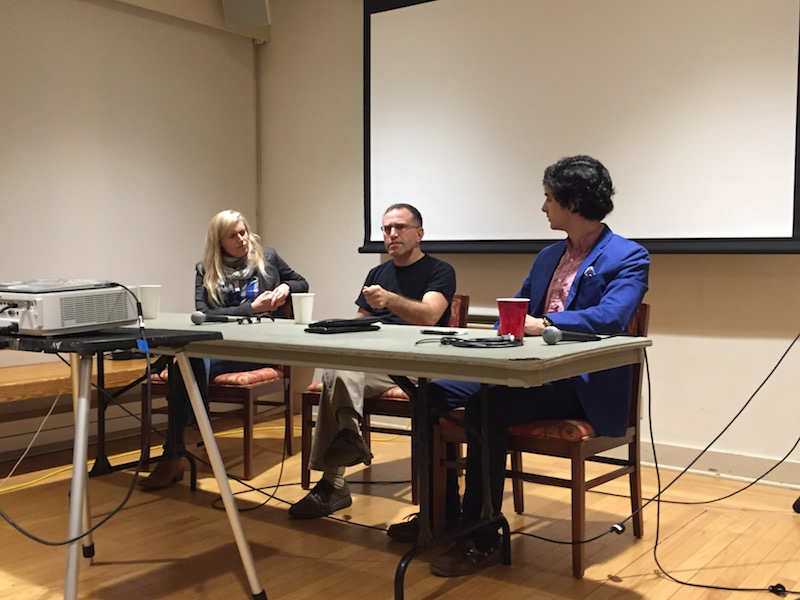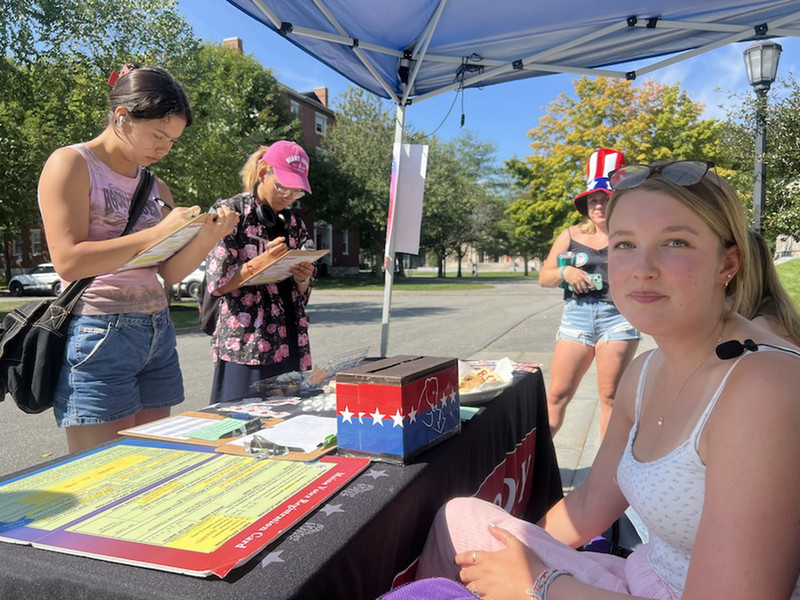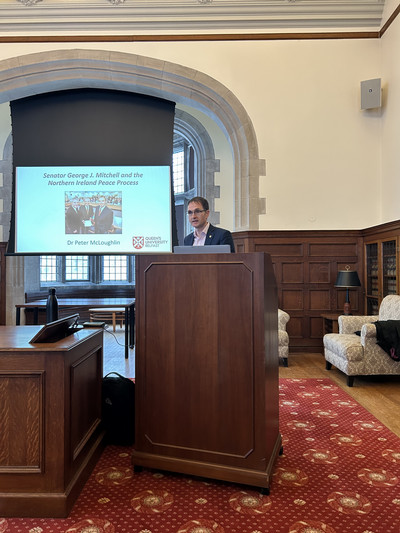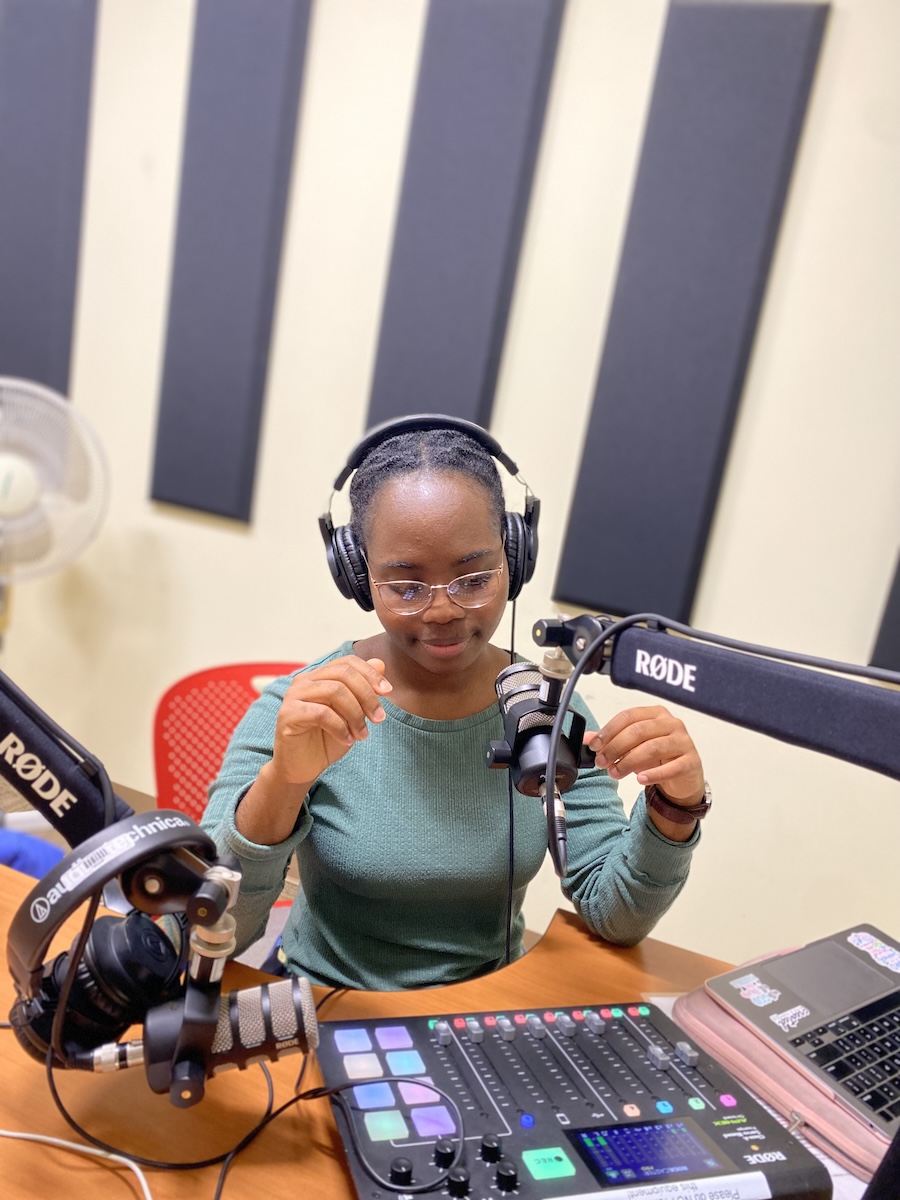Two Government Professors Discuss the Unprecedented 2016 Election
By James Jelin '16


Before packing into the Helmreich House common room to watch last night’s final presidential debate, students attended a pre-debate panel on the state of the election. The event was sponsored by the McKeen Center for the Common Good, Helmreich House, and the Bowdoin Political Union.
The panel featured two professors in the government and legal studies department: Associate Professor Jeffrey Selinger and Assistant Professor Maron Sorenson. It was moderated by Liam Gunn ’17, the McKeen Center’s election engagement fellow.
Gunn started the panel by asking what makes this election different from previous ones. Selinger jumped right in: “This is the most important election that I will ever vote in my life.”
He added that while that may sound like something “old people say to get young people interested in elections,” the truth is that “presidential elections have become progressively more important” every cycle over the last 20 years due to the increasing polarization of our parties.
Sorensen agreed that this election is unprecedented, pointing out that previously successful election models failed to predict the rise of Trump. “Past presidential elections have all been able to be predicted based on the state of the economy,” she said. If the economy improved, the party in charge would remain in office. If the economy declined, the party would be booted out.
This year has broken that pattern. “The support that has already been generated for Donald Trump based on this economic model is unprecedented,” she said.
As the debate time came nearer, Gunn opened up the panel to student questions. One student asked if the professors had predicted Trump coming this far, and if not, what beliefs they have had to revise as a result.
“Modern political science has completely failed to understand why Trump appeals to his voters,” said Sorensen. “I think that’s the most insight I’ve gained from this.”
Selinger had a more optimistic view of political science. He talked about a relatively new concept called “negative partisanship,” the idea that no matter how reluctant the electorate is to support the candidate their party chooses, they will always have intense, negative feelings toward the other.
Selinger said that seeing Trump’s success convinced him that negative partisanship was stronger than he initially thought. “No matter what candidate the parties decide to nominate, both sides are gonna get forty percent,” he observed.
After the panel ended, Gunn encouraged attendees to register to vote, and informed them about vans that will be running from Bowdoin to the polling station at Brunswick Junior High on election day.
As the election engagement fellow for the McKeen Center, Gunn is creating Bowdoin’s first non-partisan get-out-the-vote effort. In addition, he is hosting events like this panel and debate watching party, which he said should make the election more central to campus life.



